yWhales
yWhales is the largest, exclusive, global leadership community aimed at shaping the business of Web3 to create a better human experience shared by all. Communities: We’re a community of successful business leaders with a common interest in technology that has the potential to improve our world. Solutions: We support business leaders in understanding how digital transformation will improve their businesses and lives. This is the next phase of digital transformation, not a complete shift in how we do business. Ventures: Web3 is an opportunity for us to help create safer global commerce and, in some cases, a more equal playing field. That’s why we’re ready to deploy capital in supporting founders & businesses that are working to build the next wave of digitization to improve the way we all live, work, and play Labs: We’re building the future that we hope to see – by building with the most talented teams in Web3, our speed, and quality are second to none.
Episodes
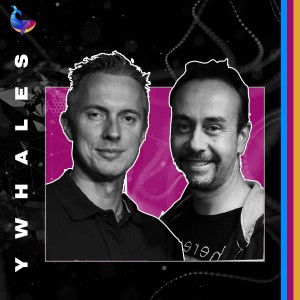
Monday Jan 03, 2022
Monday Jan 03, 2022
Bernd Lapp and Stefaan Ponnet join the yWhales team to discuss Avado - a blockchain computer you can use to run dApps and stake cryptocurrency. Avado enables you to earn 100% of your rewards from staking. Interestingly, only 1% of Ethereum is currently staked making staking a potentially lucrative business.
The Avado team also share how Avado allows you to decentralize the network of your choice (Bitcoin, Monero, Ethereum, or Avalanche). Today, 60% of Ethereum runs on Amazon Web Services. So, the Avado team’s mission is to decentralize more of Etherium by empowering people to run their own nodes.
“We sold decentralization” - Avado Team
About Guest
Bernd Lapp and Stefan Ponnet are Co-Founders of Avado. Bernd brings the business brains to the table while Stefan is the duo’s tech geek.
Before Avado Stefan was an Ethereum Technology Expert at Stad Antwerpen, a strategic planner and ASTAD Architect at Digipolis, and a business owner at 3DParts - amongst many other roles. Currently, he also works as a senior researcher at Sony.
Before Avado Bernd was an advisory board member at the Ethereum Foundation, and a founding member at Blockchain on Tour. Currently, he is also the Co-Founder of Relai, President of Swarm City, and a Board Member at CommonsStack.org.
You’ll learn about:
A use case for the blockchain to stimulate healthy citizenship (and why that isn’t yet fully possible).
The business story behind the growth of Ethereum and anecdotes from its early days in 2016.
How having decentralized nodes keeps the blockchain decentralized and reduces staking fees.
Why proof of stake mining is more energy-efficient than proof of stake mining.
How Avado works, its pricing, its energy costs, its bandwidth requirements, and how relevant it will be in the future.
How you can use NFTs as product warranties.
Resources:
Connect with Bernd Lapp: LinkedIn | Twitter
Connect with Stefaan Ponnet: LinkedIn
Connect with YWhales: Website | BitClout | Twitter
Avado: Website | Twitter
Mysterium Network
Timestamps
[00:37] Who are Bernd Lapp and Stefaan Ponnet?
[02:14] What drew them to blockchain?
[04:42] Did the city of Antwerp use crypto to create incentives for citizens? OR How crypto can be used to stimulate healthy citizenship.
[07:38] How Bernd Lapp started working in Vitalik Buterin’s (Ethereum Co-founder) foundation.
[15:42] Did they know how big Ethereum was going to be?
[20:41] Smart contracts: creating something that was not possible before.
[22:35] How enabling everyone to run a node creates true decentralization.
[26:20] The hardware behind the crypto user experience.
[29:45] Simplifying the user experience of staking at home.
[32:12] Walkthrough of using Avado
[36:09] The energy consumption costs of proof of stake.
[36:55] How much memory does an Avado device have?
[37:11] How much storage do you need to run Ethereum on an Avado?
[39:24] How Avado works (and how much $ETH you need to run it).
[43:55] How much is Avado? (Avado pricing)
[45:20] Sharing your internet with Mysterium (is it safe?).
[47:20] What will happen when the ETH merge happens?
[53:06] The cost of proof of work mining vs. the costs of proof of stake mining.
[56:26] The demand for Avado after ETH 2.0 goes live.
[1:01:38] Getting into the Avado dApp store.
[1:04:41] Exciting blockchain products today: DeFi and NFTs.
[1:06:51] Creating decentralized autonomous organizations.
[1:11:38] Maximum bandwidth that Avado would require.
[1:13:24] Anecdotes from the early Ethereum days: The Kitten Box.
[1:17:28] An incident in China that made Ethereum unusable for 1.5 days in 2016.
[1:20:37] The rollercoaster story of 150,000 stolen ETHs.
[1:28:38] Which Avado should you buy?
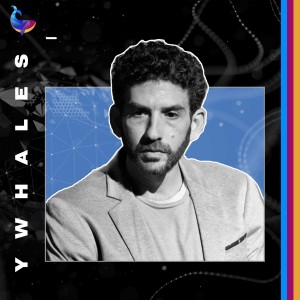
Monday Jan 03, 2022
Monday Jan 03, 2022
Jason Eisen joins the yWhales team to discuss how he is bridging the gap between how we trust in real life and how we are asked to trust on the internet through his company UTU. UTU is an infrastructure, built on multiple chains, that tries to learn how you trust. The trust mechanisms of the internet haven’t evolved from the eBay days decades ago. Meanwhile, the internet has evolved.
Jason explains the economics and financial incentives buried in the dated way we currently broker trust online today. “Trust is not a commodity,” he says. Rather, trust builds economic value. According to him, this is what companies like Trustpilot completely misunderstand. UTU attempts to revolutionize digital trust for the first time in 30 years. Tune in to learn how UTU decentralizes reviews and acts as an honest broker, how it provides people with curated and personalized review experiences online, and how it is doing so for web 2.0 companies as well as web 3.0 companies.
About Guest
Jason Eisen is the founder of UTU. He is on a mission to build trust infrastructure for the internet that is perpetually benevolent. He is also the founder of Maramoja a pan-African alternative to Uber - but, unlike Uber, it is centered on trust-focused ride experiences. It is from his experience conceptualizing Maramoja that he began to develop his obsession with digital trust. Currently, he is based in Nairobi.
You’ll learn about:
How the way you trust online is drastically different from the way you trust in real life.
The three things wrong with digital trust (theory of trust, delivery mechanism, incentives).
The reason why the way we trust online has not evolved in 30 years.
The black market of fake online reviews.
Why web 2.0 platforms are not incentivized to be honest brokers (the economics of trust).
How better trust infrastructure online can improve customer lifetime value and other important business growth metrics.
Resources:
Connect with Jason Eisen: LinkedIn | Twitter
Connect with YWhales: Website | BitClout | Twitter
UTU: Website | Telegram | Twitter
Ocean Protocol
Grassroots Economics Foundation
Solar Punk on OpenSea
Timestamps
[00:37] Jason Eisen’s (Utu) first exposure to blockchain.
[02:34] Realizing he’s building the wrong thing (and Nairobi’s taxi horror stories).
[08:06] Trust and mistrust on Nairobi’s streets (trust-based benefits in the taxi space) OR Accidentally getting obsessed with building for digital trust.
[11:43] Who do you trust (how we trust online vs. how we trust in real life)?
[13:47] 3 core problems of digital trust.
[18:42] The multi-chain architecture of Utu and its backward compatibility.
[21:44] How Utu works (and how it doesn’t sell trust as a commodity).
[24:20] What is the b2b incentive to adopt decentralized trust infrastructures like Utu?
[28:02] How to find companies that use Utu.
[29:27] A use case for Utu in DeFi OR How Utu can be used in DeFi (and use cases in other industries).
[30:45] Are Utu users KYC-ed? (and how that affects the quality of the Utu experience)
[32:57] The economic value that reviews create (and why people should be paid to leave reviews)
[33:43] How do reviews and review curation work on Utu?
[38:17] Token endorsements: Utu trust tokens and Utu coin
[39:48] The role of blockchain for Utu reviews.
[40:34] Tokenomics of the Utu trust token and $UTU
[42:39] Online trust without scores.
[45:07] Early success on Utu.
[47:54] Trusting addresses using Utu.
[49:10] Why Utu is targeting the web 2.0 market and the web 3.0 market.
[51:19] Building trust and managing privacy in the healthcare industry.
[52:45] Blockchain opportunities in Kenya and the rest of the African continent.
[59:33] Interesting NFTs: Solar Punk
DISCLAIMER: yWhales is not affiliated with YPO but at this time only allow for YPO, YPO Gold, and YNG members due to privacy & confidentiality. Support and production for today’s episode was done by Truth Work Media. Nothing in the podcast constitutes professional and/or financial advice, nor does any information on the podcast constitute a comprehensive or complete statement of the matters discussed or the law relating thereto.
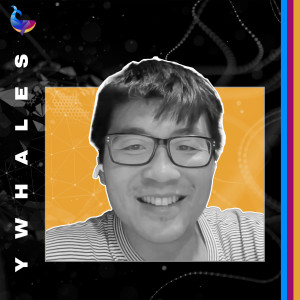
Wednesday Dec 22, 2021
Wednesday Dec 22, 2021
Crypto liquidity entrepreneur Tom Chan joins Jay to discuss how APY.Vision enables anybody to become a liquidity provider while providing tools liquidity providers would need to manage and maximize their earnings. They explore how farming, vaults, impermanent loss, and hidden pools work on APY.Vision.
Allowing anyone to become a liquidity provider is at the heart of APY.Vision’s innovation. The centralized and closed banking system monopolizes liquidity for itself. Chan’s APY.Vision is a DEFI answer to the inaccessible opportunities of being a market maker in today’s mainstream centralized financial system.
While it's still making early strides in the blockchain space, APY.Vision aims to focus more on automation in the future.
About Guest
Tommy Chan is the Founder and Core Developer of APY.Vision. APY.Vision is a one-stop-shop for liquidity pool analytics and yield farming rewards tracking. Chan and his team on APY.Vision are all liquidity providers.
You’ll learn about:
Why being able to be a liquidity provider is revolutionary.
How to minimize impermanent loss.
The primary ways a liquidity provider makes money and how to spot profitable pools.
Risks to watch out for when farming crypto.
How to passively manage and auto-compound your farming rewards with vaults.
How to find hidden crypto pools with large APYs.
How to get involved and contribute to the blockchain space (as a developer or designer).
Resources:
Connect with Tom Chan: APY.vision
Connect with YWhales: Website | BitClout | Twitter
DexTools
Galaxy Fight Club
MetaMask
Timestamps
[00:37] Why Tommy Chan (APY.Vision) started mining Ethereum.
[04:53] Building APY.Vision: the gap it was trying to fill.
[06:58] Becoming a crypto liquidity provider.
[10:10] Shared layers of data and staying up to date with protocols.
[12:41] APY.Vision platform walkthrough.
[15:47] What is impermanent loss (and how to minimize it)?
[18:25] APY.Vision platform walkthrough (continued).
[21:20] How to pick which crypto pools to provide liquidity for (and when to get out).
[25:01] How farming works on APY.vision (and risks to watch out for).
[27:42] The APY.Vision team.
[28:29] How do vaults work and how to make one on APY.Vision.
[33:30] Searching for hidden pools with massive APYs.
[37:10] What happens when you suffer impermanent loss?
[39:20] The future of APY.Vision
[40:12] Chains that APY.Vision is on.
[41:36] Overcoming Ethereum’s gas problem.
[44:03] Business on Ethereum vs. business on other chains.
[44:44] What tools to use when trading and evaluating crypto.
[46:04] Vision token ($VSN) tokenomics.
[50:04] Why APY.Vision sells NFTs that expire.
[51:20] Adding utility to the NFT space.
[53:42] How many NFT games will actually follow through and get made?
[55:06] Where do you find talent in the blockchain space?
[57:01] What languages should you learn if you want to contribute to the blockchain space?
[1:00:02] Are there good alternatives to MetaMask?
DISCLAIMER: yWhales is not affiliated with YPO but at this time only allow for YPO, YPO Gold, and YNG members due to privacy & confidentiality. Support and production for today’s episode was done by Truth Work Media. Nothing in the podcast constitutes professional and/or financial advice, nor does any information on the podcast constitute a comprehensive or complete statement of the matters discussed or the law relating thereto.
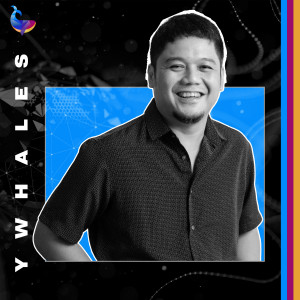
Wednesday Dec 22, 2021
Wednesday Dec 22, 2021
What if you could put food on the table, fund your healthcare, and pay off your debt just by playing a game? This is what the Yield Gaming Guild helps people around the world do. They turn gamers into investors.
Gabby Dizon, Co-Founder of Yield Guild Games (YGG), joins the YWhales team to discuss how blockchain is creating a new wave of capitalism. Dizon tells the story of Axie Infinity and explained how it took off as a result of an accidental discovery by the game’s community. After all, the magic of crypto games lies in treating the community as co-creators of the game and letting players own and create value in the game’s economy.
Most interestingly they discuss how blockchain is a democratizing technology. Dizon explains why blockchain’s effects are being felt by people in rural areas more than people in cities and how crypto games are changing the future of work.
About Guest
Gabby Dizon is the Co-Founder of the Yield Guild Games and Altitude Games. Having been making games since 2003 he is a veteran of the gaming industry and is based in the Philippines where he grew up. Today, YGG engages 6,000 players, has offered $11MM in rewards to its gaming community and impressively has more than $1 Billion of assets under management in NFTs and Tokens. Most of YGG’s hires come from its community.
You’ll learn about:
How web 3.0 is changing the influence of communities on digital spaces.
Whether or not it is profitable to invest in and acquire game assets.
Why it is easier than ever to start a game studio.
The difference between the corporate metaverse vs. the open metaverse.
How YGG and similar initiatives are democratizing access to the metaverse’s economic opportunities.
How play-to-earn games are changing the societal narrative around the (financial) utility of playing games.
Resources:
Connect with Gabby Dizon: LinkedIn | Yield Guild Games
Connect with YWhales: Website | BitClout | Twitter
Play-to-earn Documentary
Gallery.so (for NFT management)
Open Sea NFT Marketplace
Timestamps
[00:40] Gabby Dizon’s story and the birth of Yield Guild Games.
[05:10] What does ERC-1155 mean (semi-fungible crypto tokens)?
[06:12] The significance of community in web 2.0 vs. web 3.0.
[09:40] The Yield Guild Game (YGG) community and its hierarchy.
[12:26] How did the lending program begin in YGG.
[13:17] What a normal week in YGG is like.
[15:04] Why YGG owns more than one BILLION dollars worth of NFTs and tokens.
[16:20] Are there too many game launches planned for the metaverse?
[18:00] Two types of metaverses that will be available in the future.
[20:33] Democratizing access to the metaverse’s economic opportunities.
[22:32] YGG’s favorite chains.
[23:00] YGG’s game criteria: how they decide what games to buy.
[24:07] Who manages YGG’s NFT assets?
[25:26] What does it take to run an international gaming guild (turning gamers into investors)?
[28:34] How will crypto-literacy and play-to-earn games help rural provinces out of poverty?
[32:56] Will we see the shift into true VR/AR?
[34:30] Which games will take off (and why)?
[36:23] $YGG tokenomics
[37:40] How web 3.0 is killing the 9-5 world of work.
[40:50] Should you stay anonymous in the crypto world?
[43:09] How to manage and display your NFTs.
[44:10] Play-to-earn Documentary
DISCLAIMER: yWhales is not affiliated with YPO but at this time only allow for YPO, YPO Gold, and YNG members due to privacy & confidentiality. Support and production for today’s episode was done by Truth Work Media. Nothing in the podcast constitutes professional and/or financial advice, nor does any information on the podcast constitute a comprehensive or complete statement of the matters discussed or the law relating thereto.
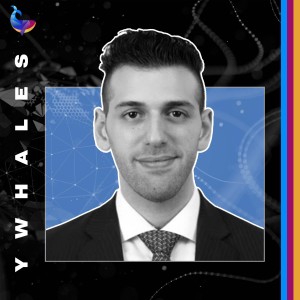
Friday Dec 17, 2021
Friday Dec 17, 2021
Summary
Crypto entrepreneur Nader Al-Naji (diamond hands) joins the yWhales team to discuss how the decentralized social blockchain (DeSo) works. Nader provides a thorough overview of what differentiates DeSo from other blockchains, the costs involved with successfully running a social blockchain, and the democratization of content delivery.
One of the most interesting innovations that DeSo brings is a new model of investing in people. On the DeSo chain, every person has their own coin - and just like other coins, the value of a person’s coin fluctuates based on people’s investment activity.
Another way DeSo is changing the content world as we know it is that it allows creators to have their content across different DeSo apps. For example, if you create a piece of content on Diamond App it will be available on the BitClout App as well.
Tune in to learn how else the content world will be changing as a result of blockchain innovations.
About Guest
Nader Al-Naji is currently the head of the DeSo foundation. He graduated from Princeton in 2013 and was a software engineer at Google. After leaving google Nader founded Basis, a crypto startup. However, due to regulatory hurdles that made Nader realize he wouldn’t be able to fulfill his vision for Basis - he returned $132 MM in investment money. Nader launched BitClout in 2021. BitClout is a twitter-like social media network on the DeSo blockchain. As of September 2021, BitClout has raised $200MM.
You’ll learn about:
What the decentralized social blockchain (DeSo) can do better than other blockchains like Solana and avalanche.
How the DeSo blockchain can now disrupt social interactions and not just financial transactions.
Why social blockchains are more costly than financial blockchains.
How the DeSo blockchain can integrate, democratize, and tailor content delivery and social experiences on the web.
How DeSo enables creators to actually own their content.
How content moderation works on the DeSo blockchain.
The story behind the launch of the decentralized social blockchain.
Resources:
Connect with Nader Al-Naji: Bit Clout | LinkedIn | Twitter
Connect with YWhales: Website | BitClout | Twitter
The Decentralized Social Blockchain
OpenSea NFT Marketplace
Metamask Crypto wallet
Web3 Will Not Be Built on Smart Contracts
Diamond App (built on DeSo)
CloutFeed App (built on DeSo)
Polygram (built on DeSo)
NFT Z (built on DeSo)
BitClout (built on DeSo)
BitHunt
DeSo Pulse
Ed & Brian Krassenstein Talk DeSo (YouTube channel)
Timestamps
[00:40] Introducing Nader Al-Naji (Diamond Hands)
[01:17] What is the decentralized social blockchain?
[03:07] What it’s like to create your own blockchain.
[06:44] The benefit of having all the content on the same chain.
[09:40] How do decentralized blockchains stay decentralized?
[12:46] Immigrating NFTs into DeSo wallets.
[15:47] Will the $DESO coin get listed on Binance and Coinbase?
[17:16] $DESO coin tokenomics.
[19:10] Should 1 $DESO be worth 1 dollar? (the psychology behind the price of coins)
[23:24] What kinds of social experiences can be built on DeSo?
[26:00] How do we get creators on DeSo? (marketing)
[28:41] Complexities when buying $DESO
[32:06] Can DeSo apps become mainstream?
[34:21] How investing in people works on DeSo and how to avoid scams.
[42:55] Elon Musk on BitClout (a DeSo app) and what reserved profiles are.
[45:42] How do I prevent my content from going on apps I don’t like on the blockchain? (content moderation on DeSo)
[48:06] Managing competitor decentralized social blockchains.
[50:47] Why did Nader Al-Naji start the decentralized social blockchain? (and how he returned $132 MM in investment)
[58:35] The gaps in the DeSo blockchain (what DeSo needs to grow and become mainstream).
[1:00:28] Nader Al Naji’s shoutouts.DISCLAIMER: yWhales is not affiliated with YPO but at this time only allow for YPO, YPO Gold, and YNG members due to privacy & confidentiality. Support and production for today’s episode was done by Truth Work Media. Nothing in the podcast constitutes professional and/or financial advice, nor does any information on the podcast constitute a comprehensive or complete statement of the matters discussed or the law relating thereto.

